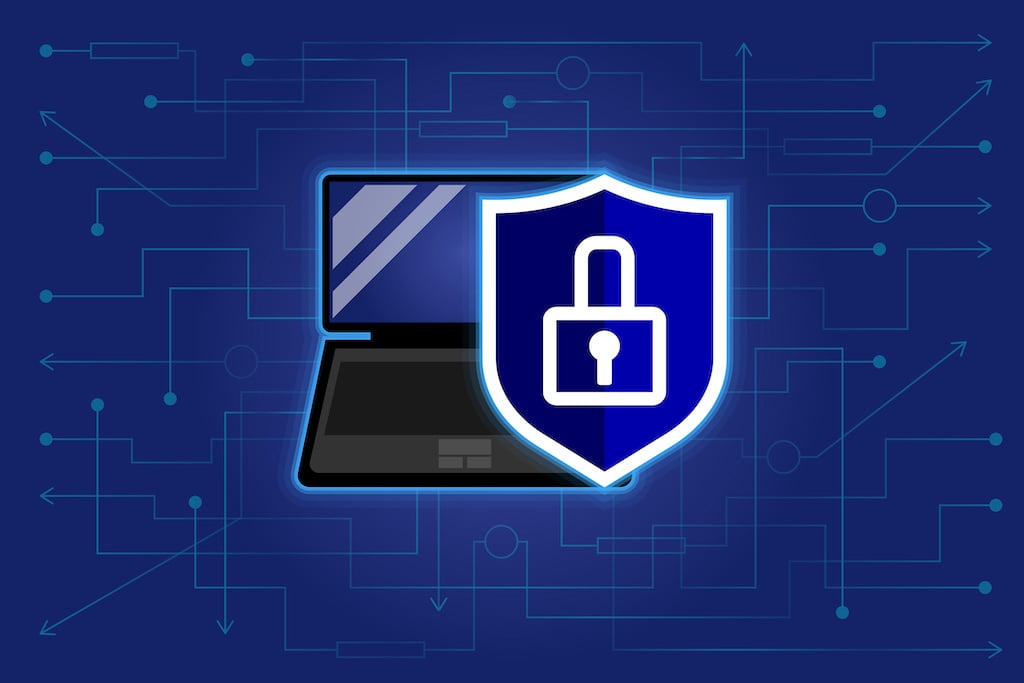Not many things change as rapidly as technology, and we all know how businesses today rely on it. Are your IT strategies keeping up with pace? It’s inevitable that you will be dealing with IT issues on a regular basis, and preventative measures can be invaluable in reducing potential problems.
IT should be an asset, not a liability, and that preventative care is the key to wellness for your practice’s patients as well as its technology. We have five common IT issues healthcare practices and facilities might face and how to mitigate them.
Lack of Internal Security Measures
The most serious IT concern for your business would most likely be internal security measures. Most data breaches are primarily caused by negligent employees. These employees have access to sensitive data and when not careful, can lose data to weak passwords, phishing attacks, and unauthorized access to information.
Create a plan for protecting patient information
To mitigate this risk, you must create a plan for protecting sensitive files and other company-confidential information, as well as a map of who can have access to what information and when. Use tools to restrict access whenever applicable and to assign levels of access to patient information, as well as confidential files, folders, and applications. You can regularly review and monitor access rights and change privileges as needed.
Provide better protection for patient information and prevent cybercriminals from figuring out your passwords by enforcing password policies. Require your employees to set stronger passwords, reset them every 3-6 months, and never share passwords with others. Also, establish a policy that prevents employees from doing work-related activities on their personal mobile devices.

Loss of Data
Losing data will not only cripple your business, it will make a negative financial impact. Backup and disaster recovery is essential to protecting your valuable information and your patients' sensitive data.
Backup and disaster recovery services
A data backup and disaster recovery plan is something every healthcare facility should have in place, no matter the size of your company. A data backup and disaster recovery plan that incorporates cloud technology is essential to the prevention of data loss. Typically, a reputable cloud service offers additional layers of security that will allow your facility to store sensitive information without the risk of losing data. Your data backup plan may include the following features:
- Disaster or backup contingency plan
- Backup servers
- Cloud-based services
- External storage
- IT support
Outdated Technology
Most healthcare facilities neglect the fact that technology hardware and software have a lifespan, no matter how expensive they are, and sometimes, repairs will even cost more than purchasing brand new devices and applications. Outdated technology is always less efficient as well, increasing employee and patient frustration, and promoting other lost opportunities.
Plan for regular maintenance, work with a knowledgeable IT company
In addition to learning the life cycle of your hardware and software, the best solution is to standardize all your hardware components and software applications. You don’t have to do this on your own. You may outsource your IT and work closely with experienced IT professionals to help maintain and optimize your technology.

Patient Care Suffers if System goes Down
Healthcare facilities rely heavily on information technology for almost all aspects of patient care. Despite the ever-growing importance of healthcare IT strategies, surveys reveal that over 96% of healthcare organizations have experienced at least one instance of unplanned system downtime. Such downtime –whether caused by network issues, software failure, power failure, or human error –can have a major impact on patient care. HIMSS reports that, in some cases, patient injury can directly result from downtime.
Work with an IT Provider who can minimize downtime and create processes to reduce downtime, mobile device action plan
When you partner with a healthcare managed IT services provider, its staff can help you minimize the frequency of unplanned downtime and create processes to reduce the duration of downtime if an incident does occur. Also, create a mobile device action plan that will require users to password-protect their devices, encrypt their data, and install security apps to prevent data breaches while devices are on public networks.
No Plan for Cyber Attack
The cybersecurity risks in the healthcare industry are growing at such a rate that most internal IT teams may not be able to keep up. Many practices are also unaware of how vulnerable their employees and current IT infrastructure are to phishing scams and other attempts at fraud. And when your practice is attacked, your in-house IT team may be overwhelmed or even unprepared to respond to the fallout.

A managed IT services provider can assess vulnerability and identify areas for improvement
Cybersecurity is something you should be proactive about. You must create a plan that will ensure your network and system are safe and secure. One measure you can take is outsourcing your company’s IT needs. Becoming educated and equipped with managed IT services will significantly benefit your practice in more ways than one. Managed IT services can help identify the strengths and weaknesses of your organization and thus, save your employees time, generate money for your business, and provide you with remote monitoring for a safer network.
Solve All 5 Issues in a Single Sweep with Medicus IT
The most important tool you could incorporate into your facility’s IT infrastructure is having a trusted IT managed services provider on your side. All of the five technical issues mentioned above can be prevented with one simple action–choosing the best technical support team.
At Medicus IT, we provide preventive, strategic, and deeply experienced IT services and support that turn technology from a burden into a benefit for medical practices, ambulatory surgery centers, and other healthcare organizations.
You know the importance of always having a plan B, and that's exactly what we'll handle for your healthcare facility. We'll work towards reducing the risk of common healthcare business issues revolving around your IT system, as well as ensure that your data is protected around the clock – all day, every day. From supporting clinical workflows and processes to providing strategic insights that prevent the need for a reactive approach, Medicus IT is entirely focused on helping your organization make the most of your technology.
Medicus offers centrally managed, à la carte add-ons to personalize your practice’s managed IT services. Our set of healthcare-specific security essentials includes:
- Endpoint Protection
- Predictive Security Enforcement
- Automated Breach Detection
- Encryption
- Dark Web Monitoring
- Penetration Testing
- SIEM (Security Information and Event Management)
- Phishing
- Threat Remediation
Protect Your Organization and Partner With a Healthcare IT Expert
The expert Medicus IT team provides solutions for the unique challenges facing the healthcare industry today. Let us help you leverage your technology to improve clinical outcomes, caregiver productivity, and overall patient experience. To learn more, contact us to schedule a free assessment with one of our healthcare specialists.